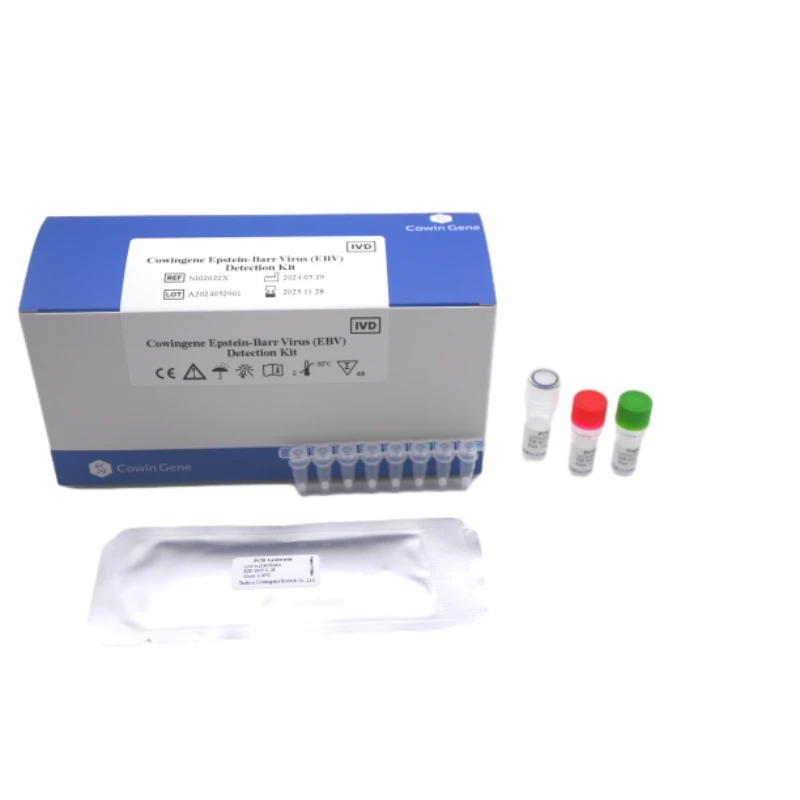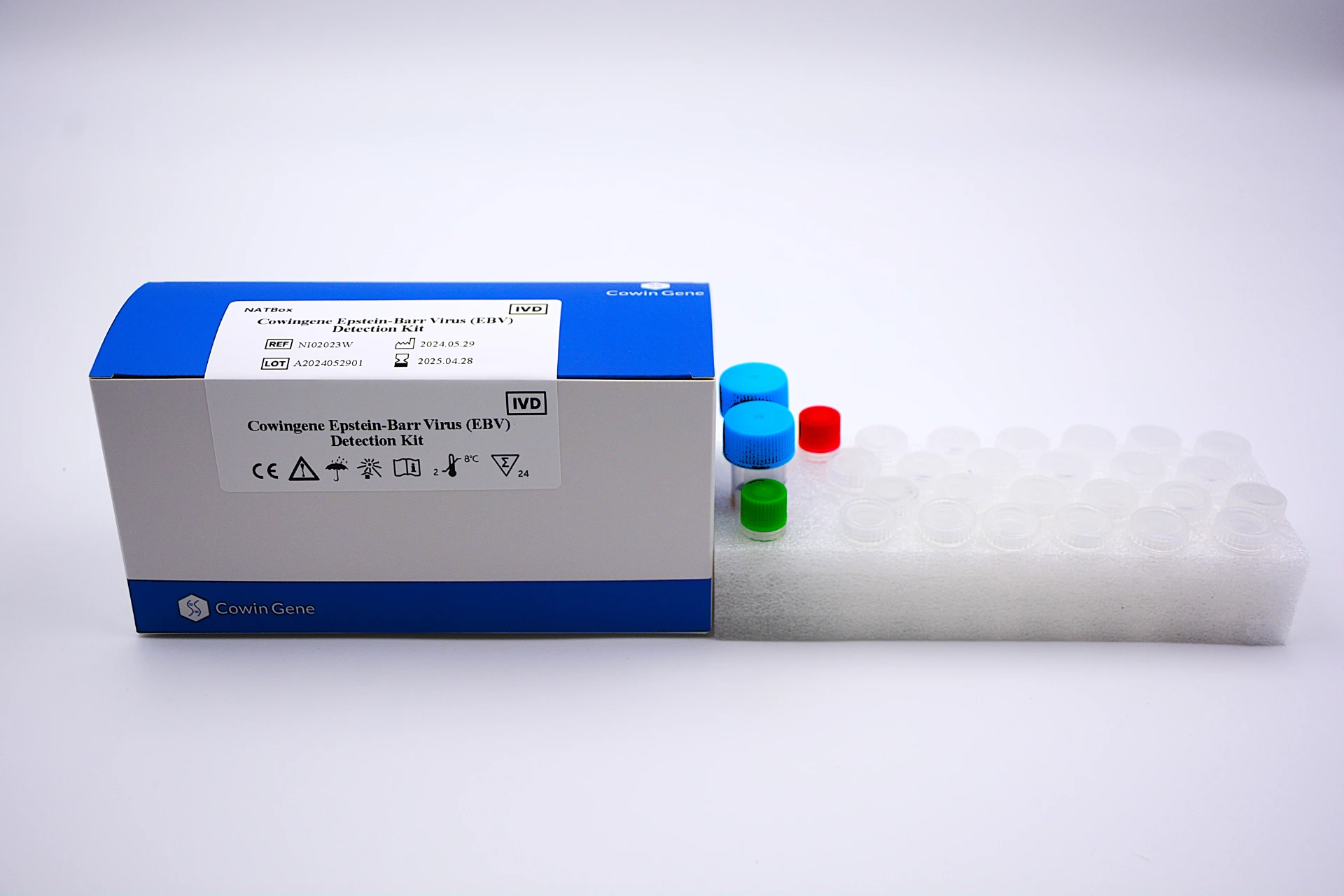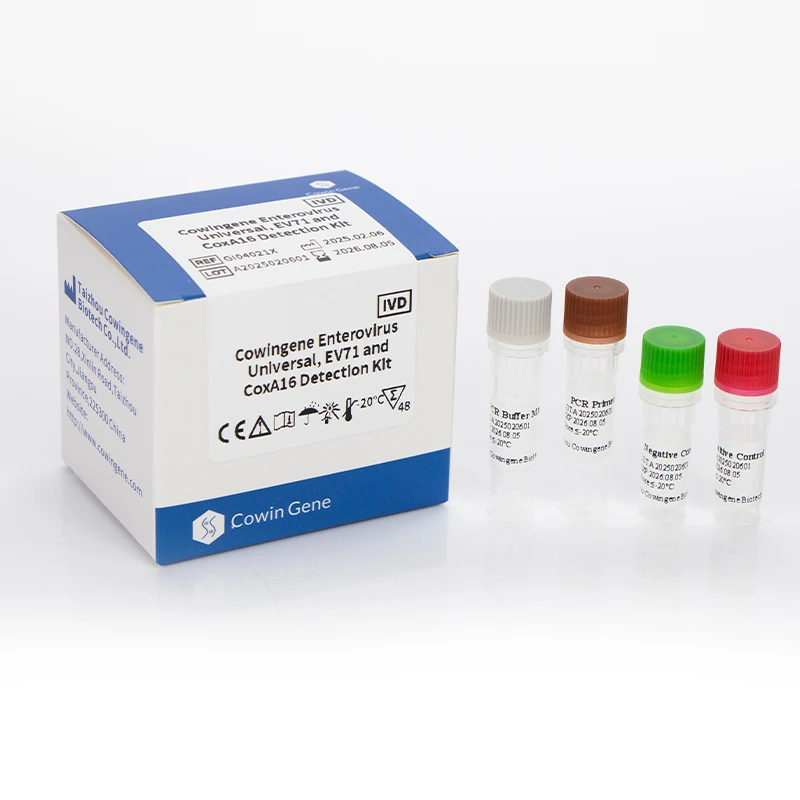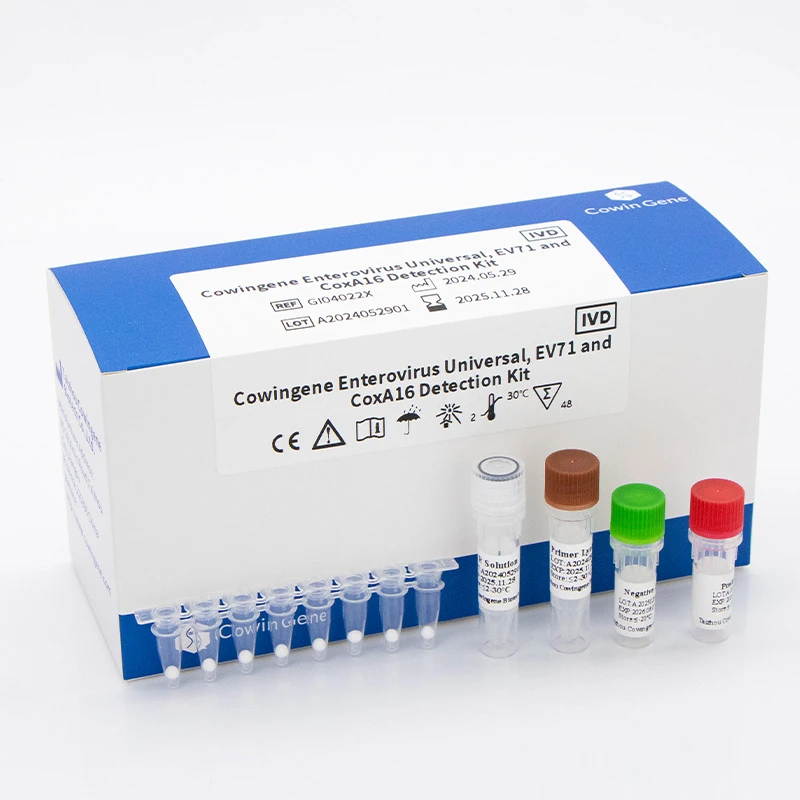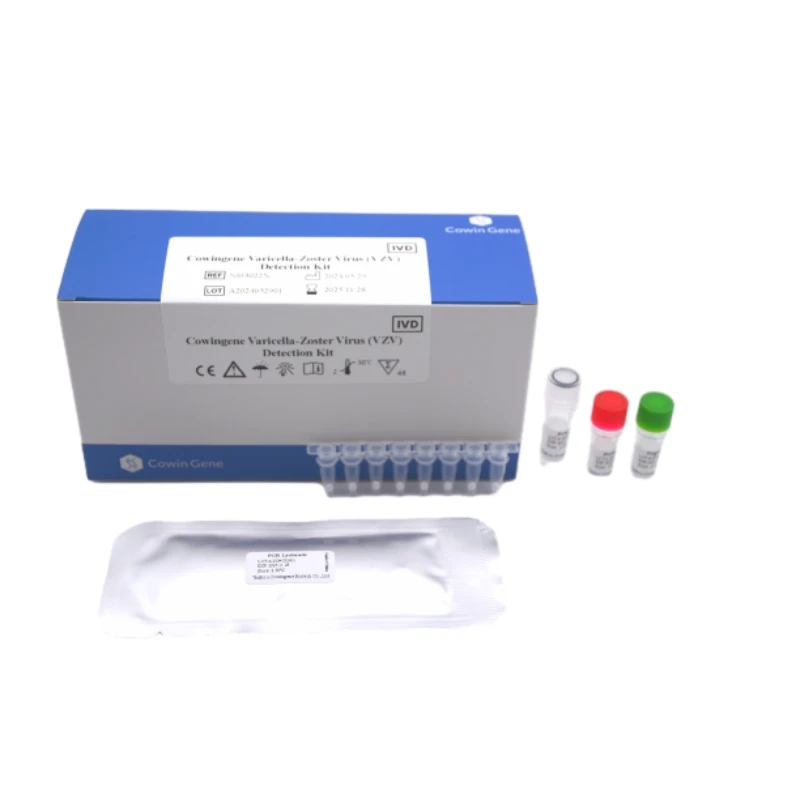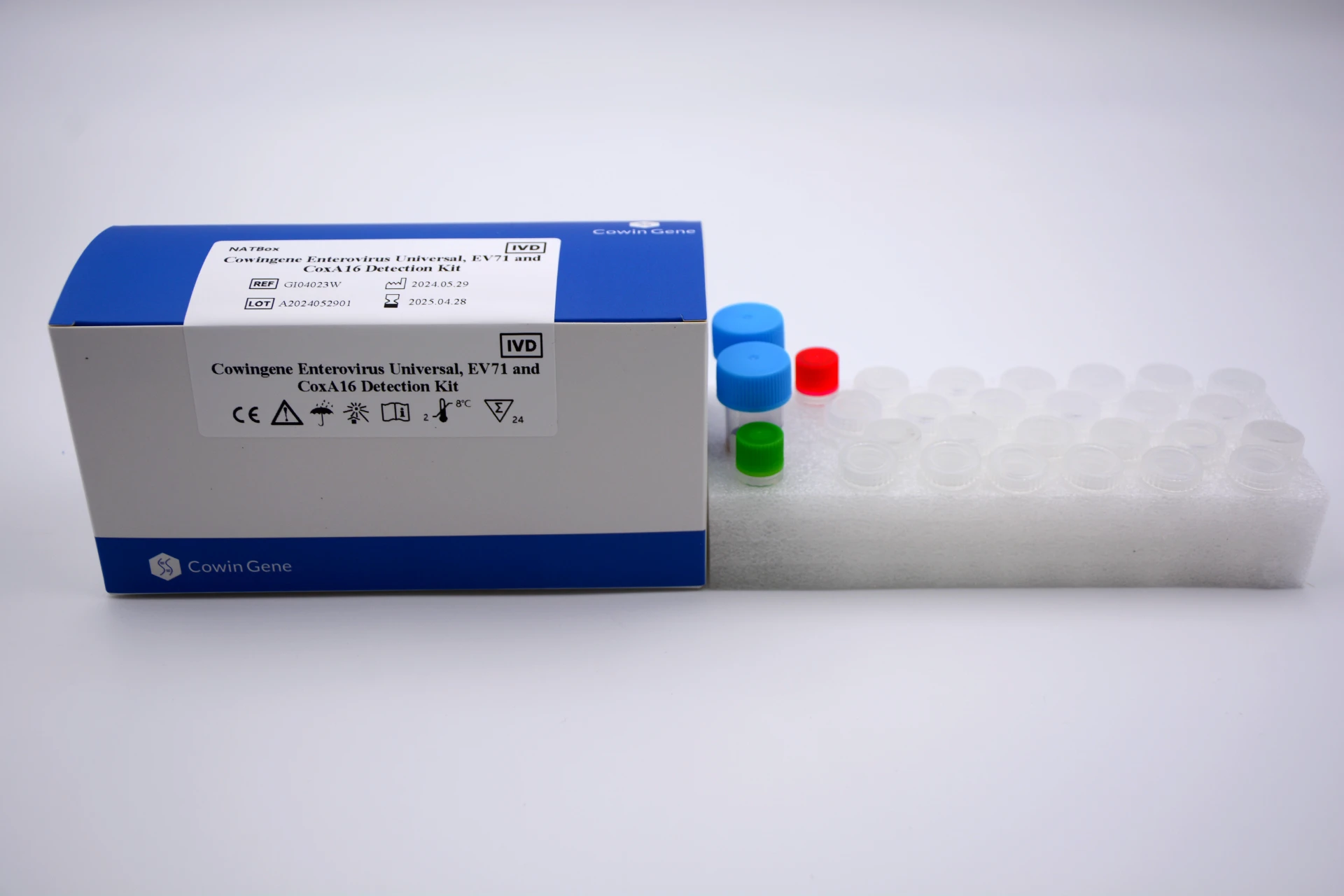Nov . 14, 2025 16:00 Back to list
Understanding PCR for Herpes Simplex: Diagnosis and Applications
What is PCR for Herpes Simplex and Why Should We Care?
At first glance, the phrase PCR for herpes simplex might sound like dense lab jargon — and yet, this technology powers some of the quickest, most reliable viral diagnoses worldwide. Herpes simplex virus (HSV) isn't just a clinical concern; it poses public health challenges globally, especially because early detection can affect treatment outcomes and transmission rates. The Polymerase Chain Reaction (PCR) test for herpes simplex virus has revolutionized how doctors identify infection, making what was once a painstaking process into something remarkably swift and sensitive. Understanding this technology isn't just for virologists; patients, clinicians, and public health specialists all benefit from grasping its significance.
The Global Context: Why PCR for Herpes Simplex Matters Now
Globally, herpes simplex virus affects roughly two-thirds of the population under 50, according to World Health Organization data. The burden of HSV is especially notable in developing countries where diagnostic resources can be limited. Traditional testing methods often lack the precision or speed needed to manage outbreaks and inform care effectively.
PCR technology flips this narrative, enabling targeted detection of HSV DNA with high accuracy — and in hours rather than days. That's a game changer when you think of the burden on healthcare systems and the social stigma surrounding herpes diagnosis. Plus, it's crucial in neonatal care, where newborns are particularly vulnerable to HSV infections. WHO recognizes molecular testing like PCR as a cornerstone in managing infectious diseases globally.
Mini takeaway: PCR for herpes simplex provides a critical bridge between clinical urgency and accurate viral detection on a global scale.
What Exactly Does PCR for Herpes Simplex Mean?
You might have heard of PCR before—it’s that nifty lab method that makes a ton of copies of a tiny piece of DNA to help identify what’s in a sample. When it comes to herpes simplex, PCR detects the genetic material of the virus itself in skin lesions, blood, cerebrospinal fluid, or other specimens.
Its connection to healthcare isn’t just about pinpointing infection; it’s about doing so with a level of sensitivity unmatched by older, culture-based techniques, or antibody tests that can miss early-stage infections. Basically, PCR can tell if HSV is present before the body’s immune response ramps up, making it an invaluable early diagnostic tool.
Core Components of PCR Testing for HSV
1. Sensitivity & Specificity
PCR tests can detect even the tiniest amount of HSV DNA, which means fewer false negatives and much more confidence in the results. This sensitivity is why clinicians trust PCR for elusive cases.
2. Sample Types & Preparation
Samples can be swabs from ulcers, cerebrospinal fluid in suspected meningitis cases, or even blood. Proper sample handling is a must because contamination or degradation will yield inaccurate results.
3. Turnaround Time
Unlike culturing the virus which can take days, PCR results typically come back within hours, speeding up clinical decisions. For treatment or public health control, this rapid feedback is gold.
4. Equipment & Expertise
PCR requires thermal cyclers, reagents, and staff trained to avoid errors or contamination—often a barrier in resource-limited settings but overcoming this is part of scaling diagnostics worldwide.
| Specification | Details |
|---|---|
| Sample Types | Lesion swab, CSF, blood |
| Turnaround time | 4–6 hours |
| Sensitivity | >95% |
| Specificity | >98% |
| Equipment Needed | Thermal cycler, PCR reagents |
| Operator skill | Moderate to advanced |
Mini takeaway: PCR for HSV relies on precision, speed, and skilled implementation—details that define its real-world usability.
Real World Use: How PCR for Herpes Simplex Transforms Clinical Settings
Across continents, PCR for herpes simplex is reshaping how healthcare providers manage HSV infections. In sub-Saharan Africa, where HSV-2 has strong links to HIV transmission, quick confirmatory tests can guide prevention strategies.
In hospitals globally, PCR assays are the frontline for diagnosing HSV encephalitis, a life-threatening but treatable neurological condition. Rapid diagnosis here is a matter of life and death.
Humanitarian organizations rely on PCR when outbreaks threaten vulnerable populations. And, of course, routine STI clinics use nucleic acid amplification tests to give patients a timely diagnosis — which helps contain spread and reduces stigma.
Vendor Comparison: Popular PCR Kits for Herpes Simplex
| Vendor | Turnaround | Sensitivity | Ease of Use | Cost (per test) |
|---|---|---|---|---|
| GeneXpert | ~45 mins | >98% | High | $30–40 |
| Abbott m2000 | ~3 hours | >97% | Medium | $25–35 |
| Qiagen Rotor-Gene | ~2 hours | >95% | Medium | $20–30 |
Embracing the Benefits: Why PCR Testing for HSV Is Worth It
To put it simply: PCR testing for herpes simplex saves time, resources, and often lives. The ability to diagnose early means more effective antiviral treatment, fewer outbreaks, and reduced transmission. Socially, it reduces anxiety around uncertain symptoms and stigma through quick clarity.
Economically, while PCR tests may carry upfront costs, they prevent expensive complications and hospitalizations downstream. Many clinicians emphasize how this early detection actually lowers the overall healthcare burden.
Peeking Ahead: Innovations Shaping the Future of PCR for Herpes Simplex
- Point-of-Care PCR Devices: Handheld or portable PCR machines promise future bedside or even home-testing — making diagnosis nearly instantaneous.
- Digital PCR: Next-gen PCR assays provide even more precision by offering absolute quantification of viral loads.
- Automation & Integration: Lab automation reduces human error and speeds processing time across large patient groups.
- Cost Reduction: Advances in consumables and reagents aim to make PCR accessible worldwide without breaking budgets.
Overcoming Obstacles: Challenges and How Experts Tackle Them
It’s not all smooth sailing. PCR’s dependence on quality equipment and trained personnel means many regions struggle with accessibility. False positives due to contamination or improper handling remain common issues.
However, innovative training programs, rugged and portable PCR machines, and advancements in sample prep chemistry help break down these walls. Organizations like the pcr for herpes simplex initiatives promote best practices to make these tests globally viable.
FAQ: Common Questions About PCR for Herpes Simplex
- Q1: How quickly can PCR detect herpes simplex compared to traditional tests?
- PCR can identify HSV DNA within a few hours, whereas culture tests may take several days. This rapid turnaround is critical for timely treatment and infection control.
- Q2: Is the PCR test for herpes simplex reliable for newborns?
- Yes, PCR is the preferred method for diagnosing neonatal herpes because of its high sensitivity and specificity, critical in early intervention to prevent severe complications.
- Q3: Can PCR distinguish between HSV-1 and HSV-2 types?
- Most modern PCR assays are designed to differentiate HSV-1 from HSV-2, which helps guide treatment decisions and patient counseling.
- Q4: Does PCR testing require special sample handling?
- Yes, samples must be collected and stored appropriately to avoid DNA degradation or contamination. Laboratories usually provide strict protocols to ensure accuracy.
In Conclusion: The Long-Term Value of PCR for Herpes Simplex
PCR for herpes simplex isn’t just a lab test; it’s a cornerstone for modern viral diagnosis that impacts patient outcomes, public health policy, and even social well-being. Its global adoption continues to rise, with ongoing innovations promising to make this technology even more accessible and efficient.
Curious to explore more or incorporate PCR testing in your healthcare practice? Visit us at https://www.cowingene.com for expert insights and product guides.
References:
1. Wikipedia - Polymerase Chain Reaction
2. WHO - Herpes Simplex Virus Fact Sheet
3. ISO 15189: Medical Laboratories — Requirements for Quality and Competence
Related PRODUCTS
-
Comprehensive Guide to Monkey Pox Detection: Methods, Applications & Innovations
NewsNov.23,2025 -
Essential Guide to Monkeypox Detection: Technologies, Applications & Future Trends
NewsNov.23,2025 -
Understanding Strep B Test Cost: Global Insights and Healthcare Impact
NewsNov.22,2025 -
Group B Strep DNA Test – Fast, Accurate Screening to Prevent Neonatal Infection
NewsNov.21,2025 -
Essential Guide to Group B Strep Test Kits: Benefits, Uses & Innovations
NewsNov.20,2025 -
Group B Strep PCR Test – Rapid and Accurate Detection for Improved Newborn Health
NewsNov.20,2025


